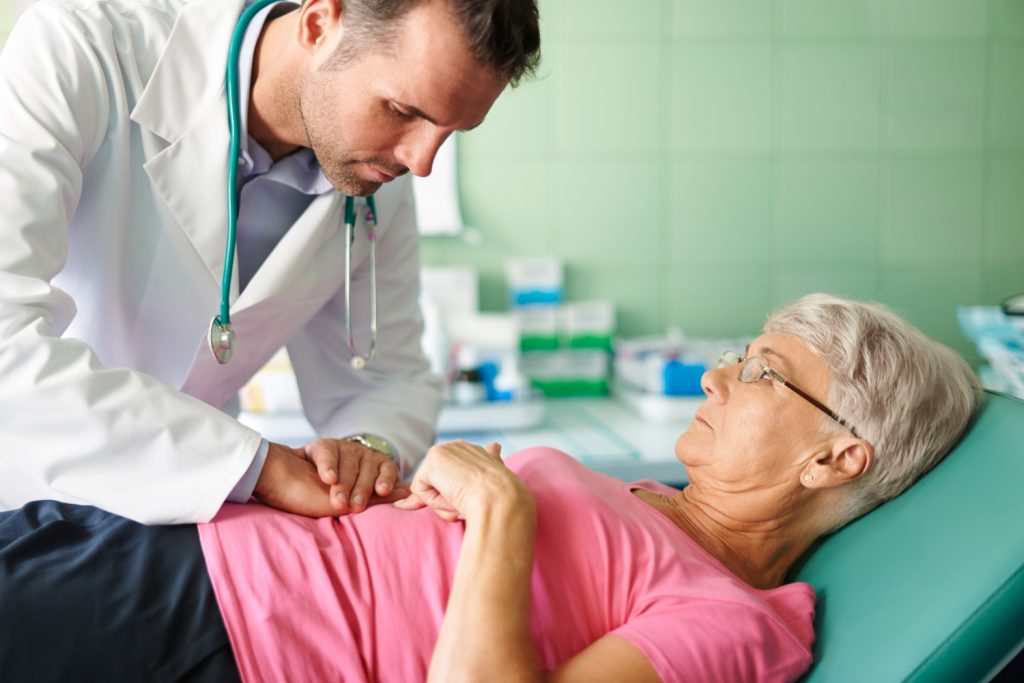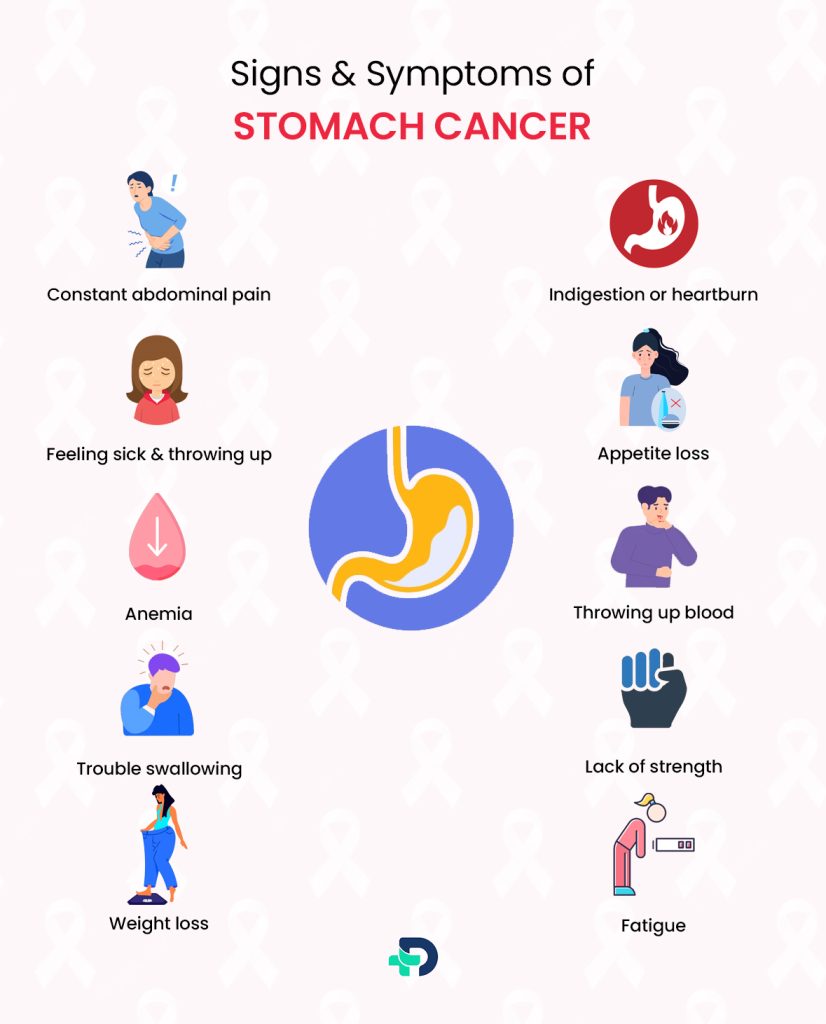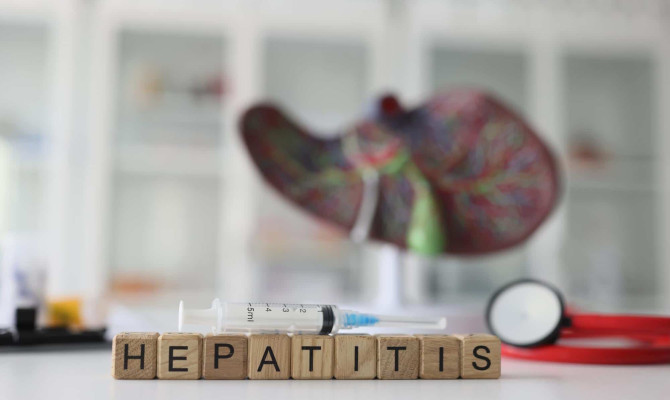Understanding Stomach Cancer: Causes, Symptoms, and Treatment

- Stomach cancer
- 28 Aug 2023
Overview
What is Stomach Cancer?
Stomach cancer, also known as gastric cancer, starts when normal, healthy cells in the stomach develop into an uncontrolled growth of mass known as a tumor. A tumor can be benign, which means it may grow but won’t spread, or it could be malignant, which means the cancerous tumor can spread to other bodily regions. Stomach cancer doesn’t usually show any signs in its early stages, making it hard to find.
How does stomach cancer develop?
- Usually, stomach cancers grow slowly over several years.
- Precancerous changes are commonly noticed in the stomach’s inner lining before cancer develops.

Causes & Risk factors
Causes and Risk factors of Stomach Cancer:
A combination of factors like hereditary, environmental, and behavioral factors leads to the development of stomach cancer. Risk factors may include –
Infection with Helicobacter pylori: 1Causes | Researched based study from National Institute of Hydrology
- The bacterium H. pylori is seen in the stomach mucus and spreads through contaminated food and water.
- H. pylori, however, in some people, lead to inflammation and stomach ulcers and could result in cancer.
Diet:
Some meals have been linked to an increased risk of stomach cancer like:
- Diets rich in processed, smoked, pickled, or salty foods.
- Vegetable and fruit-free diets.
- Lack of dietary fiber in the diet.
Alcohol and tobacco use:
- Both excessive alcohol use and cigarette use are recognized risk factors for stomach cancer.
Obesity:
- There is evidence that being overweight or obese increases the chance of developing many cancers, including stomach cancer.
Genetics:
- An increased risk of stomach cancer may result from particular genetic abnormalities, such as those linked to hereditary diffuse gastric cancer (HDGC), or from a family history of the illness.
Gender and age:
- Older adults are more likely to get stomach cancer, mainly affecting those over 50.
- Stomach cancer tends to affect males more than women.
Prior stomach surgery:
- People who have had a partial gastrectomy or other stomach operations may be at a higher risk of developing stomach cancer.
Pernicious anemia:
- Due to a lack of intrinsic factor (protein needed for vitamin B12 absorption), this disorder results in a vitamin B12 deficiency.
Other GIT diseases:
- Intestinal metaplasia and chronic atrophic gastritis are precancerous diseases that might raise the risk of stomach cancer.
Exposure to certain chemicals:
- Stomach cancer risk has been related to occupational exposure to specific chemicals, including asbestos and specific metal dust.
Ethnicity:
- Some ethnic groups, such as Asian, Pacific Islander, and Hispanic populations, have higher rates of stomach cancer.
Even though these risk factors can make it more likely that someone will get stomach cancer, not everyone exposed to them will get it. Regular checkups and healthy living can help lower the chance of stomach cancer and improve health.
Types
Types of Stomach Cancer:
Depending on the origin, the kind of stomach cancer may vary.
Adenocarcinoma: 2Types | Researched based study from Cancer Research UK
- Cancers that originate in glandular cells of the stomach are known as adenocarcinomas.
- In the UK, this is the most prevalent kind of stomach cancer.
Linitis plastica:
- Linitis plastica advances to the muscles in the stomach wall, making it stronger and more complex.
- This results in the stomach not expanding or moving as it should when food is consumed.
Squamous cell carcinoma:
- The squamous cells are the flat cells that guard the stomach lining and are the origin of tumor growth.
Non-Hodgkin lymphoma:
- It is the cancer of the lymphatic system.
GIST, or gastrointestinal stromal tumor:
- It is an uncommon sarcoma that develops in the gastrointestinal tract, most often in the stomach wall.
Neuropathic tumors:
- Neuroendocrine tumors of the stomach (NETs) are uncommon tumors.
- They begin in the stomach’s neuroendocrine cells.
Signs & Symptoms

Signs and Symptoms of Stomach Cancer:
Some of the common signs and symptoms of stomach cancer are: 3Signs and Symptoms | Researched based study from American Society of Clinical Oncology
- Constant abdominal pain
- Indigestion or heartburn
- Feeling sick and throwing up
- Appetite loss
- Anemia
- Throwing up blood
- Trouble swallowing
- Lack of strength
- Weight loss
- Fatigue
- Fluid builds up in the abdomen
- Dark, sticky stools with digested blood
- Yellowing of eyes and skin(Jaundice)
Diagnosis
Diagnosis:
You may have to go through several tests to find out if you have stomach cancer, how big it is, and if it has spread (the stage). Your doctor can decide what care you need based on the stage.
Imaging tests:
Gastroscopy: 4Diagnosis | Researched based study from Victorian Government
- Examines the esophagus, stomach, and small bowel.
- During the gastroscopy, your doctor will take swabs of any strange spots.
Biopsy:
- Tissue samples are collected from doubtful stomach regions during an endoscopy and are transported to a lab for testing to note if any cancer cells are present.
CT scan:
- Your chest, stomach, and the area between your hips will be scanned with a CT machine to find out the location of gastric cancer and if it has spread.
Endoscopic ultrasound (EUS):
- If you have stomach cancer, you might get an endoscopic ultrasound scan (EUS) to determine the size and extent of the spread of the cancer.
Laparoscopy:
- A minor surgery that lets doctors look inside your stomach to figure out the spread of gastric cancer.
PET-CT scan:
- Can tell you where gastric cancer is and if it has spread.
Staging Laparoscopy:
- Determines how far along the cancer is and is especially helpful when there are signs that cancer has spread, but imaging tests are not significant.
Genetic and Molecular Testing:
- These tests look at the cancer cells’ genetic and molecular traits and can help make choices about treatment, especially when tailored medicines are offered.
Blood tests:
Here are some blood tests that could be used to figure out if someone has stomach cancer:
Carcinoembryonic antigen (CEA):
- It is a tumor marker test and elevated levels of CEA have been linked to several types of cancer, including stomach cancer.
- This marker is linked with digestive tract diseases, like gastric cancer.
CBC, or a “Complete Blood Count”:
- This test counts different parts of the blood, such as white blood cells, red blood cells, and platelets.
- Some people with stomach cancer may have anemia, meaning they have fewer red blood cells.
Liver function tests:
- Since stomach cancer can move to the liver, liver function tests may be used to check the liver’s health and find any problems.
Levels of Gastrin:
- Hormones in the stomach, like gastrin, can be affected by stomach cancer.
- Gastrin levels could be checked to see if a person has a gastrinoma or another type of stomach tumor.
Blood Chemistry Panel:
- This group of tests looks at many parts of your general health, such as fluid levels, electrolyte levels, kidney function, and more.
Staging
Staging of Stomach Cancer:
A cancer’s stage on biopsy shows the size of it and if it has spread extensively. It helps your doctor figure out what kind of care you need. There are many methods to determine the extent and depth of stomach cancer.
Stage 1:
- Most of the time, stage 1 stomach cancer means that cancer has not yet spread past the thick muscle in the stomach wall.
Stage 2:
- If you have stage 2 stomach cancer, the cancer has spread to or through the inner layer of the stomach, which is made of muscle and tissue. It can also spread to lymph nodes.
Stage 3:
- If you have stage 3 stomach cancer, the cancer may have spread to or through the stomach’s inner, muscle, supporting, or outer layer.
- It could have spread to lymph nodes.
Stage 4:
- Stage 4 stomach cancer has spread to other systems or parts of the body close by or farther away.
Treatment
Treatment of Stomach Cancer:
- Chemotherapy
- Targeted Treatment
- Immunotherapy
- Chemoradiotherapy
- Surgical interventions
- Gastrectomy
- Subtotal Gastrectomy
- Total Gastrectomy
- Stomach Stent
- Lymphadenectomy
- Esophagogastrostomy
- Jejunostomy
- Minimally invasive surgeries
Prevention
Prevention of Stomach Cancer:
Even though there’s no surefire way to avoid getting stomach cancer, making some changes to your lifestyle and taking steps to lower your risk can help. Here are some things you can do that might make you less likely to get stomach cancer:
Healthy Diet:
- Eat many fruits and veggies full of vitamins, minerals, and antioxidants that can help prevent cancer.
- Eat less processed and red meat, as well as high-salt foods and foods that have been kept with salt.
- Eat lean meats, whole grains, and foods high in nutrients.
Quit smoking:
- If you smoke, stopping can significantly lower your chance of stomach cancer and other health problems.
Moderate Alcohol Use:
- Drinking too much alcohol is linked to a higher chance of stomach cancer, so limit how much you drink.
H. pylori Infection:
- If you have been told you have an infection with Helicobacter pylori, work with your doctor to get the proper treatment to get rid of the infection.
Food Safety:
- Use good food cleanliness and safety practices to lower the chance of eating dangerous germs or toxins that can cause stomach diseases.
Keep a healthy weight:
- Being overweight increases your risk of many types of cancer, including stomach cancer, so it’s crucial to stay at a healthy weight.
Limit Nitrates and Nitrites:
- Eat less prepared and salted meats, often high in nitrates and nitrites.
Family history and genetic counseling:
- If you have a history of stomach cancer or specific genetic syndromes like Hereditary non-polyposis colon cancer, Familial adenomatous syndrome in your family, you may want to talk to a healthcare worker about genetic counseling and testing to figure out your risk.
Regular Exercise:
- Do physical activities regularly. Living a busy life can help your general health and lower your chance of many diseases, including cancer.
Limit your exposure to carcinogens:
- Try to spend as little time as possible around chemicals and substances that cause cancer, such as chemicals used at work.
It’s essential to remember that some risk factors can’t be changed, like genetics and family background. But living a healthy life and getting the tests and advice your doctor suggests can significantly lower your total risk of getting stomach cancer.
Complications
Complications of Stomach Cancer:
Some of the complications with stomach cancer are: 5Complications | Researched based study from National Institute of Hydrology
- Obstruction
- Bleeding
- Perforation
- Metastasis
- Fluid buildup in the abdomen
- Malnutrition
- Weight Loss
- Anemia
- Pain
- Muscle loss
- Emotional problems
- Psychological effects
It is important to remember that not everyone with stomach cancer will have all of these problems. If you or someone you know is identified with stomach cancer, it’s essential to work closely with a medical team to handle symptoms and deal with possible consequences.
Prognosis
Prognosis:
Gastric cancer is the fifth most common type of cancer. It is also the most common cause of death from cancer around the world. The only way to treat stomach cancer that might be able to cure it is through surgery and the removal of enough lymph nodes. The prognosis is influenced by the patient’s age, general health, and the type and stage of cancer. The likelihood of successfully treating stomach cancer increases with earlier diagnosis. In most cases, the prognosis is not as favorable if the cancer is discovered after it has spread from the stomach. 5Prognosis | Researched based study from National Institute of Hydrology
Any feedback on this article?
 This Articles content was accurate
This Articles content was accurate Very Informative Article
Very Informative Article I have a question or a comment
I have a question or a comment
 This article contains inaccurate content
This article contains inaccurate content This article was not helpful
This article was not helpful I have a question or a comment
I have a question or a comment
We appreciate your helpful feedback!
Checkout our social pages
References
-
National Institute of Hydrology
Causes
-
Cancer Research UK
Types
-
American Society of Clinical Oncology
Signs and Symptoms
-
Victorian Government
Diagnosis
-
National Institute of Hydrology
Complications | Prognosis | Treatment




































